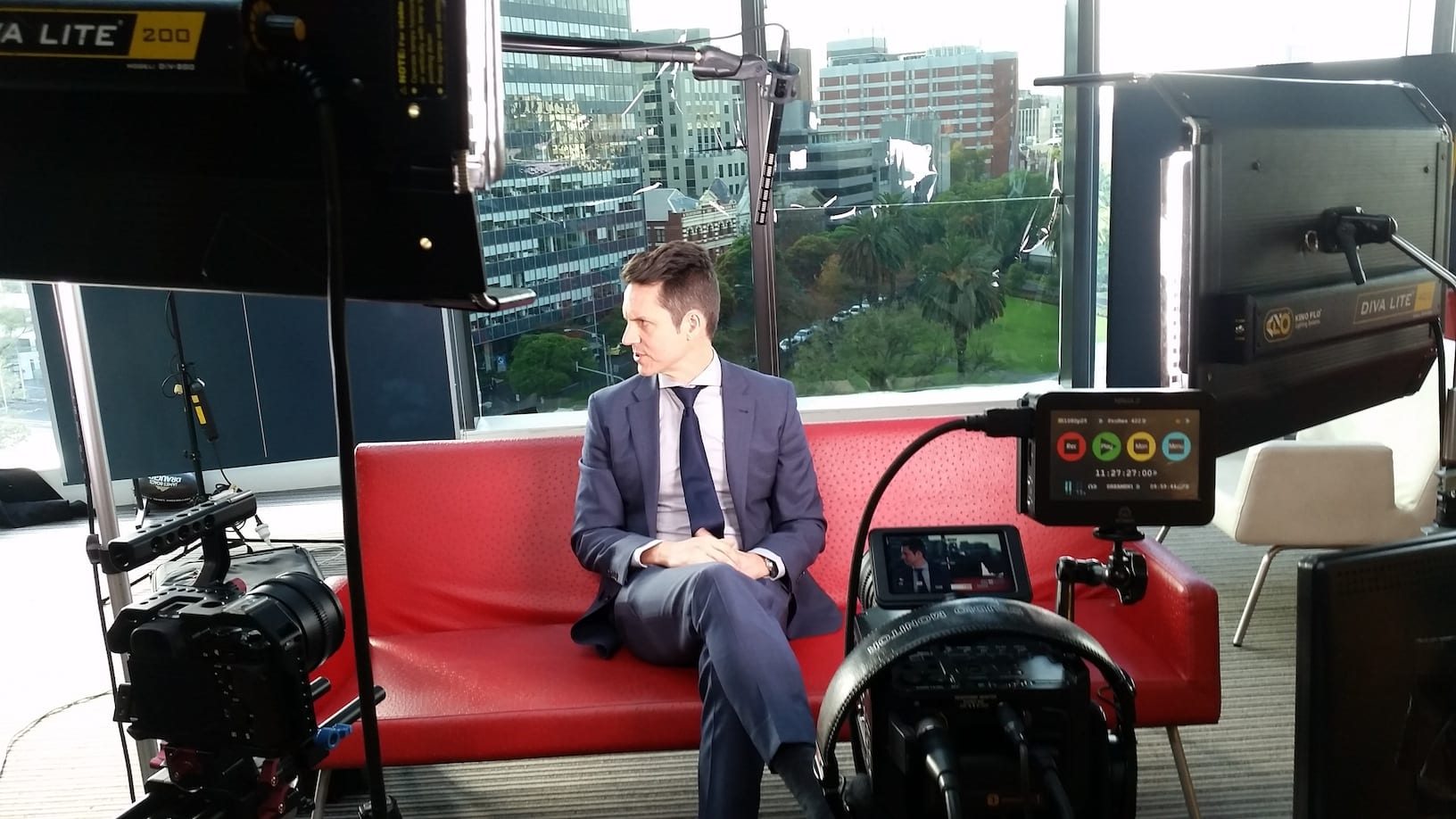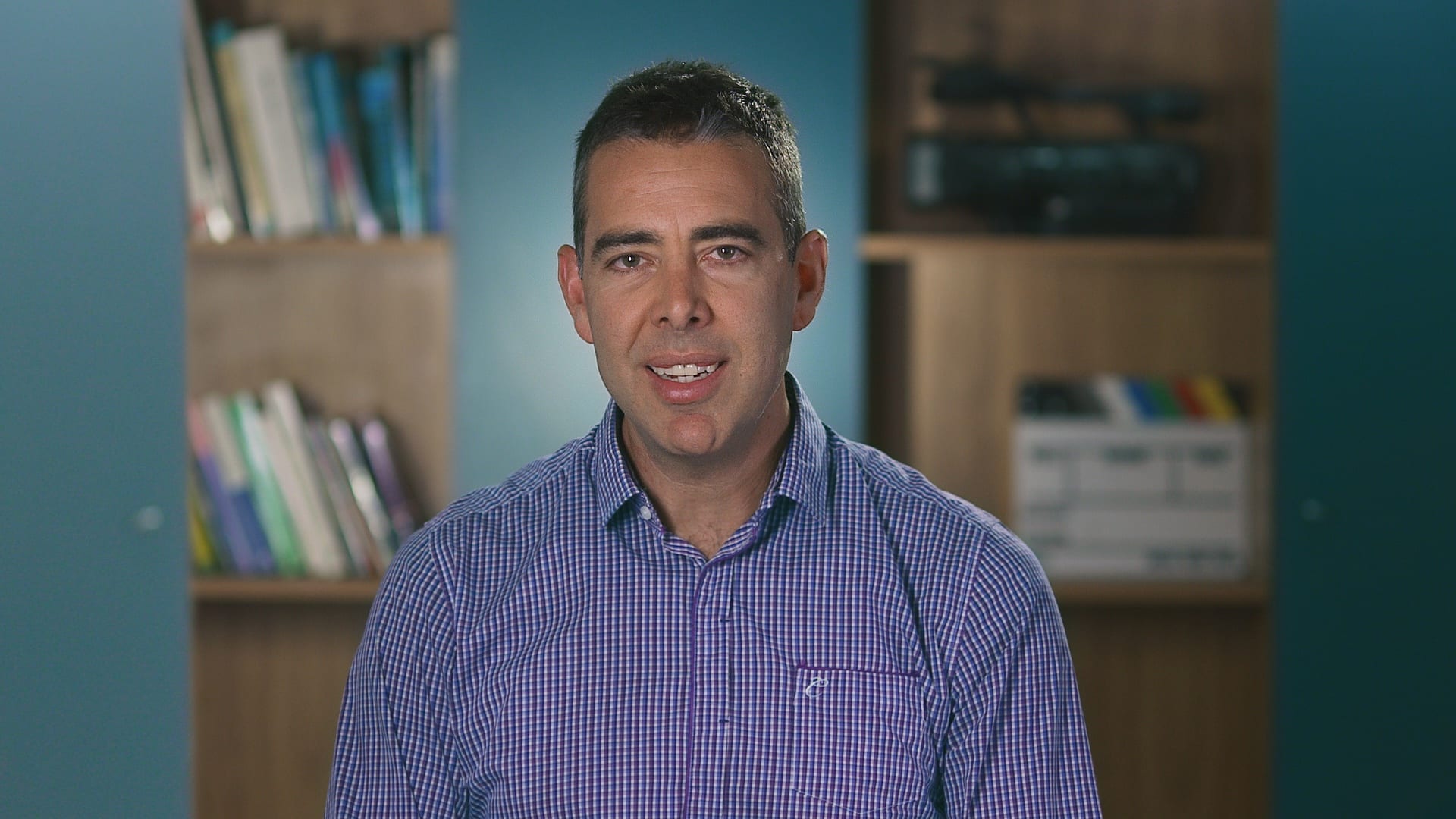Dream Engine has been producing corporate videos in Melbourne for over twenty years. In this article, we’re going to give you an overview of where we think the future of corporate video is going, along with some ideas and examples that you can use in your business.
The “Now” of Corporate Video
First, we’ll explain what the current landscape of corporate video production looks like.
During our time as a video production company in Melbourne, all the technical aspects of corporate video have improved exponentially. Our cameras record at jaw-dropping resolutions, our lights are far more filmic and beautiful than they were, and our current audio gear enables us to record crystal-clear audio no matter where we’re working—come rain, hail, or gale-force wind!
Added to this are the increasing availability of high-end camera gear such as sliders, jibs, and dollies for movement, and new lenses, external recorders, and filters to ensure that our footage looks better than ever. 2015 is a vibrant age of corporate video production, filled with movement.

But the technical capabilities aren’t the only things that have changed. The work we do has changed as the businesses we work with have changed themselves, not only in how they operate (with companies increasingly operating online and internationally) but also in their mindset and approach to video. We’ll go into more detail about this below and give you some ideas that you can take on board, whether your business is digital, international, or brick-and-mortar.
In the early noughties, businesses found room in their budgets to produce one large-scale corporate video and distribute it either on the web, online, or both. Companies knew that they needed a video, but they may not have understood why. And even when they had produced their video, there was no guarantee it was reaching the right audience.
All this has changed. Here’s what the future of corporate video will look like.
The Future of Corporate Video
Giving away free information to get a return on investment
In the future, more companies will understand that in order to increase their sales or attract new clients, they will need to underline exactly how knowledgeable they are in order to stand out online. One great way to do this is to demonstrate their expert knowledge with video.
Example
SACS Consulting are a recruiting firm based in Melbourne. They have developed their own approaches to recruiting and employee management and are thought leaders in their field. They hired us to produce a series of regular, bite-sized videos for almost every page of their website, in which their staff explain key principles of using video to recruit staff in easy-to-understand language.
Here’s an example of one of their videos:
In their, the SACS Consulting team give away free information, with only a soft call-to-action at the end. But these videos work because potential clients become familiar with the faces who work there, their products, and their expertise. Sometimes you’ve give something away to get something back!
But the videos we produce for SACS Consulting aren’t gambles. They’re part of a carefully executed video plan. This brings me to my next point:
Companies are getting a better understanding of what works… and what doesn’t
Gone are the days of creating a video, sending it off into the ether, and not measuring what it’s doing for you. These days, when companies produce a video, they want to know exactly how well it’s working so that they can build on this in the future. This allows companies to discover what works for them and their audience.
Example
Lonsec is a financial service company based in Melbourne. It creates regular, free news videos to demonstrate its expertise. The company also innovates and tries new things with its video productions and then reviews the results to decide if it works.
Here’s an example of one of their regular monthly videos:
Lonsec has commissioned us to cut shorter “teaser” versions of their videos and edit separate, specialised versions for individual clients. They analyse the hard stats for these videos to ensure that they are working effectively and that their audience is ingesting them. They find what works for their audience to ensure they’re making the right videos for them.
On the whole, these super-accurate stats are leading to two things…
More, shorter videos
There are plenty of times when long videos are appropriate, such as when you’re producing a case study or testimonial video. But in the future, to grab and hold people’s attention, you need to create shorter videos that serve one key purpose.
Example
We have produced over forty videos for TXM Lean Consultants based in Collingwood. Out of these 40-plus videos, only three have a running time of over five minutes. The remainder are all between one and three minutes in duration. This has allowed us to create a set of videos that focus on one key learning or area of expertise and then drive customers to those videos.
The intention is to identify what potential TXM clients are looking for online and then create a specialised video that answers that question, delivering traffic to their website via targeted SEO.
From the beginning of our work with TXM, we have been tracking the results of their videos. We know that the shorter videos are effective at getting good information to potential new customers without them losing interest or being distracted by what’s around them.
Because we’re watching videos everywhere
The NBN will be rolled out around Melbourne and across Australia, bringing super-fast broadband speeds to the country. Once that happens, it’ll become even easier to access video content wherever you are—at the park or on public transport. We don’t only ingest video at home or in the cinema anymore!
In this article, we’re looking towards the future, but it’s also good to remember that the future is now. With the prevalence of YouTube and Vimeo, iPhones and Androids, new tablets, and 4K TVs, there has never been more video consumed worldwide. This is why it’s so important to ensure that your videos are synonymous with your marketing strategy.
Videos and marketing will be linked
When we began producing videos in Melbourne, we followed the typical path of video production experts, focusing on expensive cameras, prime lenses, and cutting-edge lights. But over the last decade, we’ve developed an understanding of best marketing practices and how to ensure that our clients’ videos integrate with their marketing strategy.
This has been absolutely crucial. As a skill, it is as invaluable to us as our ability to light, stage, and frame interviews correctly or record crisp sound. These days, companies that are commissioning corporate videos need their corporate video production companies to be up to speed with the latest in video marketing, and we expect this need to grow over the next five to ten years.
Where to from here?
We hope this article has given you some food for thought about where the future of corporate video production lies. If you’d like to discuss what your business can start doing to come along for the ride, contact Dream Engine today.

Ryan Spanger is one of Melbourne’s most respected and sought-after video production professionals. Ryan founded Dream Engine in 2002, and specialises in helping medium to large corporates, government departments, and the non-profit sector to connect with their audience more effectively by using video.
